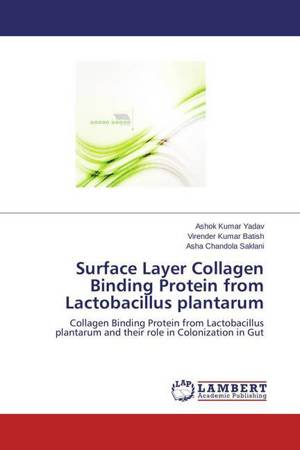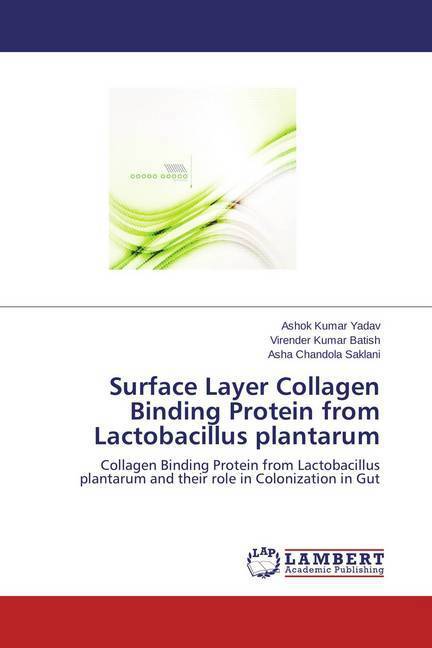
Je cadeautjes zeker op tijd in huis hebben voor de feestdagen? Kom langs in onze winkels en vind het perfecte geschenk!
- Afhalen na 1 uur in een winkel met voorraad
- Gratis thuislevering in België vanaf € 30
- Ruim aanbod met 7 miljoen producten
Je cadeautjes zeker op tijd in huis hebben voor de feestdagen? Kom langs in onze winkels en vind het perfecte geschenk!
- Afhalen na 1 uur in een winkel met voorraad
- Gratis thuislevering in België vanaf € 30
- Ruim aanbod met 7 miljoen producten
Zoeken
Surface Layer Collagen Binding Protein from Lactobacillus plantarum
Collagen Binding Protein from Lactobacillus plantarum and their role in Colonization in Gut
Ashok Kumar Yadav, Virender Kumar Batish, Asha Chandola Saklani
Paperback | Engels
€ 74,45
+ 148 punten
Omschrijving
Lactobacilli are commonly used as probiotics because of their health promoting effects.. In this study, 64 indigenous lactobacilli isolates were used for identified at genus and species level and screened for their probiotic attributes. This was followed with screening of isolates for their adhesion capability to ECM components (human type-1 collagen, mucin and fibronectin) immobilized on microtitter plates. In separate experiments cloning and characterization of cbp gene and isolation, purification and characterization of cbp protein was done and finally in vitro adhesion of L. plantarum (Lp9, Lp72, Lp91 and standard strains Lp NCDO 5276) to caco-2 cell lines was investigated. I developed criteria for in vitro selection of probiotic bacteria that may reflect certain in vivo effects on the host such as colonization of bacterial strain in gastrointestinal tract. I found three indigenous probiotic strains (Lp9, Lp72 and Lp91), among these lactobacillus plantarum 91 being the strongest contender, with high colonization potential as a prospective strain for clinical applications
Specificaties
Betrokkenen
- Auteur(s):
- Uitgeverij:
Inhoud
- Aantal bladzijden:
- 132
- Taal:
- Engels
Eigenschappen
- Productcode (EAN):
- 9783659572647
- Verschijningsdatum:
- 16/07/2014
- Uitvoering:
- Paperback
- Afmetingen:
- 150 mm x 220 mm
- Gewicht:
- 204 g

Alleen bij Standaard Boekhandel
+ 148 punten op je klantenkaart van Standaard Boekhandel
Beoordelingen
We publiceren alleen reviews die voldoen aan de voorwaarden voor reviews. Bekijk onze voorwaarden voor reviews.









